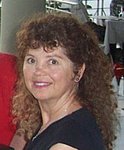I just finished reading The Painter From Shanghai by Jennifer Cody Epstein for two reasons. The first is that it was my friend's book club's selection for the month and no one liked it. In fact, some didn't finish reading it. I was curious to find out why and whether I'd like it. The second reason was purely technical. The book begins at the end of the subject's life and then goes back in time to the subject's beginnings and chronicles her life. It's a technique I could use for my novel, Orange Peels & Cobblestones.
It was an interesting novel in that the story is of a real person, Pan Yuliang, but the author used creative license to dramatize events in the painter's life. There were parts of the novel that I liked, for example Yuliang's relationship to her husband and to her art. But, in places, the book seemed to take on the feel of a history text and I found myself disinterested. I've read historical novels before and enjoyed them but, in Painter, I found more of a great divide between fiction and fact, rather than the blend that makes historical novels so enticing. Also, the book reminded me too much of Memoirs of a Geisha, which I found distracting.
One line from the book, however, made my reading it worthwhile: "Our wounds are what drive us to create." I could ponder on this for hours. Even write an article about it. There so much in the short sentence.
Subscribe to:
Post Comments (Atom)


No comments:
Post a Comment